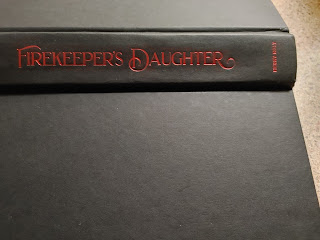Fire Keeper's Daughter Review 8
Book: Fire Keeper’s Daughter Review 8
Author: Angeline Boulley
Publishers: Henry Holt and Company
Reviewed by: Nonqaba waka Msimang
The book is set in Canada and the U.S. Daunis, the narrator was born in Montreal Canada, but grew up in the U.S.
People in both countries cross the border everyday, going shopping and running other errands. A nice surprise for readers born in Africa, is finding Anishinaabe (indigenous people) belief systems that are in sync with African teachings.
Before we do that, here’s a short synopsis for visitors who missed the 7 previous book reviews. Daunis is planning to be a medical doctor. She also loves hockey, an inheritance from her father, an Ojibwe hockey player.
Her mother is white but Daunis is in tune with her Ojibwe roots thanks to Teddie Firekeeper, her father’s sister who lives on Sugar Island, an Indian reservation.
Her Ojibwe ancestry might be the answer to why young hockey players are doing meth, a hard drug. The side effects are even more baffling, because they have identical hallucinations. Daunis intends to find out the connection between hockey and mushrooms.
Now back to the connection between Anishinaabe and African belief systems. Daunis had a friend Lily. She died but her presence is throughout the book. She loved to lee-lee. Daunis tells her she’s going to Lake State in the fall and not University of Michigan as previously planned.
“Lily trills a lee-lee that nearly shatters my eardrum.” Page 40. In South Africa, women shout li li li li li, when the bride enters her new home or when a community is celebrating something.
Menstruation is another similarity between Anishinaabe and African beliefs about the universe. Before menopause, women have monthly changes in their bodies. Some creative African Americans call it, Aunt Flow.
When it first happened to me, mama said it was time to be careful about boys. She called it ukuya enyangeni (going to the moon). Anishinaabe - indigenous people - also call menstruation the same thing, going to the moon.
Miigwech! Thank you in Ojibwe.
By: Nonqaba waka Msimang, author Sweetness, a South African novel.




Comments